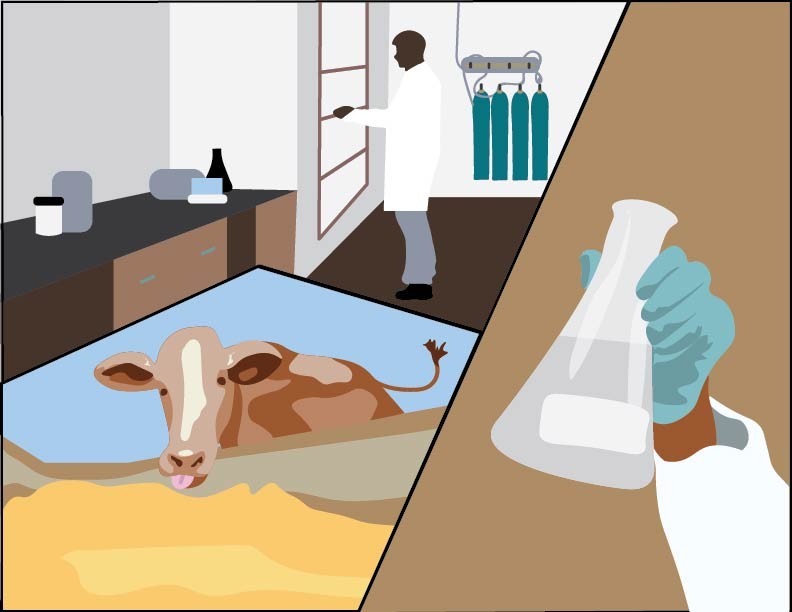University of Minnesota researchers found promising discoveries for the future of antibiotics in the ethanol industry.
Research released April 2 by the University’s Department of Animal Science found that an antibiotic commonly used in ethanol production does not seem to cause antibiotic resistance. Loss of production due to bacterial contamination has always been an issue for ethanol facilities. However, antibiotics may help if resistance doesn’t block their effectiveness.
The study tested two bacteria strains and found neither acquired resistance to the antibiotic virginiamycin after 69 days of exposure, but both strains did acquire resistance to penicillin after 18 days. This is the first study to observe long-term resistance of common industry bacteria in mimicked conditions of an ethanol production facility.
“It’s good news for the ethanol industry in being able to use that particular antibiotic and know that they’re not contributing to antibiotic resistance,” said Gerald Shurson, researcher and professor in the University’s Department of Animal Science.
Sensitivity regarding the use of antibiotics in ethanol and other industries has led some companies to use alternatives, but they may be less effective.
“The antibiotic has been designed specifically to inhibit the growth or to target the bacteria,” said Pedro Urriola, research assistant professor in the Department of Animal Science. “The alternatives are usually plant extracts or other products that were not specifically targeted for that purpose.”
In international markets, antibiotic awareness in ethanol is also heightened and may cause trade barriers if not addressed properly.
“They may have different terminology … if they’re looking for antibiotic-free, does it test below a certain level, is it never added in,” said Kevin Herrick, technical services director of POET Nutrition, the largest ethanol and corn co-product producer in the U.S. “It just adds a little bit more discussion to the point as far as different ways that we can treat [it].”
Shurson said the discussion of antibiotics is more complicated than people think because of their varying uses. He said the study is only one example.
“What this study does is it says, ‘Well, yes, they are being used, but this particular antibiotic is safe,’” said Shurson. “So that gives the ethanol industry an argument, I suppose, to be able to continue to use those prudently.”
Their research also shows benefits for the livestock industry that uses ethanol co-product as feedstock, such as distiller’s dried grains with solubles, or DDGS.
Some in the industry hesitate to use DDGS due to fears of antibiotic presence and misleading labels. Auditors ensure industries comply with label claims of “antibiotic-free” on packaging, a concern caused by uncertainty of concentration levels.
“It’s known that antibiotics are used to make [DDGS], and there is the possibility, although very low, that they may be present,” Shurson said. “So it does influence demand. It does influence market penetration.”








